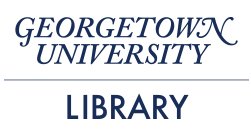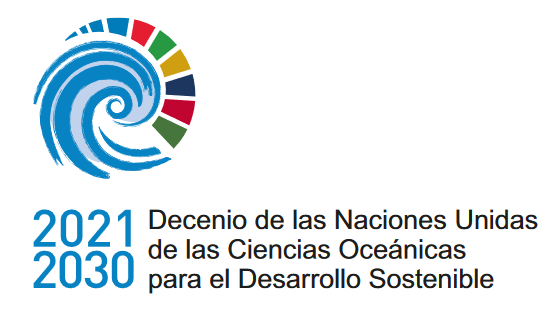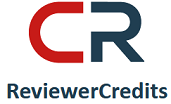Impacto de las actividades de construcción de puertos en la estructura, composición y diversidad de la población de peces: estudio de caso de Tema, Ghana
DOI:
https://doi.org/10.47193/mafis.3722024010502Palabras clave:
Pesquerías marinas, manejo, ecologíaResumen
Los puertos ofrecen progreso económico a muchos países costeros en desarrollo. En vista de la importancia económica, la creciente demanda de beneficios marítimos requiere la ampliación de los puertos existentes. Sin embargo, los ecosistemas marinos pueden volverse vulnerables al impacto negativo de la construcción de estas estructuras marítimas. Por lo tanto, el objetivo del estudio fue establecer el impacto de la expansión del puerto de Tema sobre la diversidad y estructura de la población de peces. Los datos se recopilaron trimestralmente desde junio de 2018 hasta noviembre de 2021 mediante actividades de pesca de arrastre fren-te a la costa del Gran Accra, Ghana. Los mismos se analizaron utilizando el software Primer 6. Los lugares de muestreo a lo largo de la costa del Gran Accra incluyeron Vernon Bank (VNB), Disposal area (DSA) y Offshore Sakumono (OSK). El mayor y menor número de especies en VNB y DSA, respectivamente, podría deberse al dragado y disposición de los escombros removidos. Los índices de diversidad en el sitio OSK fueron más altos que los observados en áreas perturbadas debido a la ausencia de impacto en esta área de control. Por lo tanto, se recomienda realizar más estudios sobre las asociaciones de especies invasoras que migraron al VNB durante las actividades de dragado, ya que estas especies pueden tener severos impactos económicos en la actividad pesquera de los pescadores artesanales, especialmente a nivel local.
Descargas
Métricas
Citas
Amponsah SK, Ameyaw A, Asare C. 2022. Multivariate analysis of abundance and distribution of fish species in coast of Ghana, West Africa. Res Agric Livest Fish. 9 (1): 57-69.
Asuliwonno C. 2011. Improving port efficiency and custom operations in Ghana: the case of Ghana Community Network Services Limited (GCNET) under Customs Excise and Preventive Service (CEPS) [MSc dissertation]. Kumasi: Kwame Nkrumah University of Science and Technology. 90 p. https://ir.knust.edu.gh/handle/123456789/2170.
Ballard SE, Rakocinski CF. 2012. Flexible feeding strategies of juvenile gray triggerfish (Balistes capriscus) and planehead filefish (Stephanolepis hispidus) within Sargassum habitat. Gulf Caribb Res. 24 (1): 31-40.
Barletta M, Amaral CS, Corrêa MFM, Guebert F, Dantas DV, Lorenzi L, Saint‐Paul U. 2008. Factors affecting seasonal variations in demersal fish assemblages at an ecocline in a tropical-subtropical estuary. J Fish Biol. 73 (6): 1314-1336.
Barletta M, Cysneiros FJA, Lima ARA. 2016. Effects of dredging operations on the demersal fish fauna of a South American tropical-subtropical transition estuary. J Fish Biol. 89 (1): 890-920.
Bernacsek GM. 1986. Profile of the marine resources of Ghana. CECAF/TECH/86/71. 105 p.
Botwe BO, Nyarko E, Lens PN. 2018. Settling fluxes and ecotoxicological risk assessment of fine sedimentary metals in Tema Harbour (Ghana). Mar Pollut Bull. 126: 119-129.
Breitwieser I, Ford KA. 2023. Four new species of Craspedia (Compositae/Asteraceae, Gnaphalieae) from the South Island of New Zealand, all characterised by dark red-purple anthers. N Z J Bot. 61 (2-3): 131-157.
Bryan DR, Feeley MW, Nemeth RS, Pollock C, Ault JS. 2019. Home range and spawning migration patterns of queen triggerfish Balistes vetula in St. Croix, US Virgin Islands. Mar Ecol Prog Ser. 616: 123-139.
Chao NL. 2002. Taxonomy of the seatrout, genus Cynoscion (Pisces, Sciaenidae), with artificial keys to the species. In: Bortone SA, editor. Biology of the spotted seatrout. Boca Ratón: CRC. p. 5-15.
Clarke KR, Warwick RM. 2001. Change in marine communities. An approach to statistical analysis and interpretation. Plymouth: PRIMER-E. 168 p.
Corsini M, Kondilatos G, Economidis PS. 2002. Lessepsian migrant Fistularia commersonii from the Rhodes marine area. J Fish Biol. 61 (4): 1061-1062.
Dance KM. 2017. Feeding ecology of gray triggerfish (Balistes capriscus) and red snapper (Lutjanus campechanus) at artificial reefs in the northwest Gulf of Mexico [MSc dissertation]. Laredo: Texas A&M University. https://core.ac.uk/download/pdf/186717685.pdf.
de Boer WP, Slinger JH, wa Kangeri AK, Vreugdenhil HS, Taneja P, Appeaning Addo K, Vellinga T. 2019. Identifying ecosystem-based alternatives for the design of a seaport’s marine infrastructure: the case of Tema port expansion in Ghana. Sustainability. 11 (23): 6633.
Ferri J, Matić-Skoko S. 2021. The spatial heterogeneity of the black scorpionfish, Scorpaena porcus (Scorpaenidae): differences in length, dietary and age compositions. Appl Sci. 11 (24): 11919.
Freitas MCD, Vieira RHSDF, Araújo MED. 2009. Impact of the construction of the harbor at Pecém (Ceará, Brazil) upon reef fish communities in tide pools. Braz Arch Biol Technol. 52: 187-195.
Galley NP. 1985. Administration and operation of the ports in Ghana. A case study [MSc dissertation]. Malmö: World Maritime University. 172 p. https://commons.wmu.se/cgi/viewcontent.cgi?article=1974&context=all_dissertations.
Golani D, Azzurro E, Corsini-Foka M, Falautano M, Andaloro F, Bernardi G. 2007. Genetic bottlenecks and successful biological invasions: the case of a recent Lessepsian migrant. Biol Lett. 3 (5): 541-545.
Griffin JF, Smith EH, Vines CA, Cherr GN. 2009. Impacts of suspended sediments on fertilization, embryonic development, and early larval life stages of the Pacific herring, Clupea pallasii (Report). Biol Bull. 216: 175-188.
Gutperlet R, Capperucci RM, Bartholomä A, Kröncke I. 2015. Benthic biodiversity changes in response to dredging activities during the construction of a deep-water port. Mar Biodivers. 45 (4): 819-839.
Jayaprakash AA. 2000. Food and feeding habits of Malabar sole Cynoglossus macrostomus Norman. J Mar Biol Assoc India. 42 (1-2): 124-134.
Kabasakal H. 2001. Preliminary data on the feeding ecology of some selachians from the north-eastern Aegean Sea. Acta Adriat. 42 (2): 15-24.
Kudale MD. 2010. Impact of port development on the coastline and the need for protection Indian J Geo Mar Sci. 39 (4): 597-604.
Kwei EA, Ofori-Adu DW. 2005. Fishes in the coastal waters of Ghana. Tema: Ronna Publishers. 108 p.
Margalef R. 1985. Environmental control of the mesoscale distribution of primary producers and its bearing to primary production in the Western Mediterranean. In: Moraitou-Apostolopoulou M, Kiortsis V, editors. Mediterranean Marine Ecosystems. NATO Conference Series. Vol. 8. Boston: Springer. p. 213-229.
Narvaez P, Furtado M, Neto AI, Moniz I, Azevedo JM, Soares MC. 2015. Temperate facultative cleaner wrasses selectively remove ectoparasites from their client-fish in the Azores. Mar Ecol Prog Ser. 540: 217-226.
Negi RK, Mamgain S. 2013. Species diversity, abundance and distribution of fish community and conservation status of Tons River of Uttarakhand State, India. J Fish Aquat Sci. 8 (5): 617-626.
Okyere I. 2015. Assessment of aquatic ecosystems, the fishery and socio-economics of a coastal area in the Shama District, Ghana [PhD dissertation]. Cape Coast: University of Cape Coast. 248 p.
Pielou EC. 1966. The measurement of diversity in different types of biological collections. J Theor Biol. 13: 131-144.
Prabha Y, Manjulatha C. 2008. Food and Feeding Habits of Upeneus vittatus (Forsskal, 1775) from Visakhapatnam Coast (Andhra Pradesh) of India. Int J Zool Res. 4 (1): 59-63.
Rafrafi-Nouira S, El Kamel-Moutalibi O, Boumaïza M, Reynaud C, Capapé C. 2016. Food and feeding habits of black scorpionfish, Scorpaena porcus (Osteichthyes: Scorpaenidae) from the northern coast of Tunisia (Central Mediterranean). J Ichthyol. 56: 107-123.
Schneider W. 1990. Field Guide to the Commercial Marine Resources of the Gulf of Guinea. FAO Species Identification Sheet for Fishery Purposes. Rome: FAO. 268 p.
Shannon CE, Wiener W. 1963. The mathematical theory of communities. Urbana: University of Illinois Press. 117 p.
van der Veer HW, Cardoso JF, Mateo I, Witte JI, van Duyl FC. 2018. Occurrence and life history characteristics of tropical flatfishes at the coral reefs of Curaçao, Dutch Caribbean. J Sea Res. 142: 157-166.

Descargas
Publicado
Cómo citar
Número
Sección
Licencia
Derechos de autor 2023 Samuel K. K. Amponsah, Francis K. E. Nunoo, Angela E. Lamptey, Patrick K. Ofori-Danson, Ayaa Armah

Esta obra está bajo una licencia internacional Creative Commons Atribución-NoComercial-CompartirIgual 4.0.
Los autores de los artículos publicados en Marine and Fishery Sciences conservan los derechos de autor de sus artículos, a excepción de las imágenes de terceros y otros materiales añadidos por Marine and Fishery Sciences, que están sujetos a los derechos de autor de sus respectivos propietarios. Por lo tanto, los autores son libres de difundir y volver a publicar sus artículos, sujeto a los requisitos de los propietarios de derechos de autor de terceros y sujeto a que la publicación original sea completamente citada. Los visitantes también pueden descargar y reenviar artículos sujetos a los requisitos de citas. La capacidad de copiar, descargar, reenviar o distribuir cualquier material siempre está sujeta a los avisos de derechos de autor que se muestran. Los avisos de copyright deben mostrarse de manera prominente y no pueden borrarse, eliminarse u ocultarse, total o parcialmente. El autoalmacenamiento en servidores y repositorios de preimpresión está permitido para todas las versiones.
Esta revista ofrece a los autores una política de acceso abierto. Los usuarios pueden leer, descargar, copiar, distribuir, imprimir, buscar o vincular los textos completos de los artículos, o usarlos para cualquier otro propósito legal dentro de la licencia Creative Commons 4.0 (BY-NC-SA), sin solicitar permiso previo del editor o del autor. Esto está de acuerdo con la definición BOAI de acceso abierto.



























